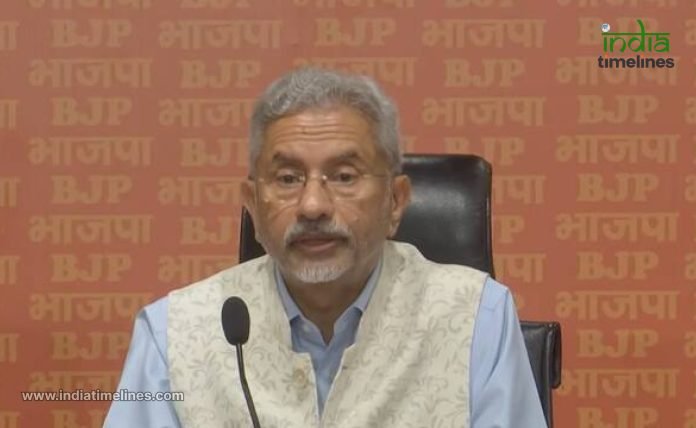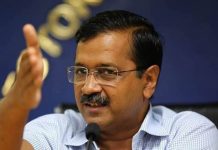
Following Prime Minister Narendra Modi’s criticism of the Congress for its handling of the Katchatheevu island issue, External Affairs Minister Dr. S Jaishankar has reiterated the stance, stating that India’s first Prime Minister, Jawaharlal Nehru, had intended to relinquish the island to Sri Lanka. The issue resurfaced after Tamil Nadu BJP chief K Annamalai obtained information through an RTI request regarding the 1974 pact, wherein the then-Indira Gandhi government accepted the island as part of Sri Lanka under the Indo-Sri Lankan maritime agreement. Subsequently, in 1976, during the Emergency period, another agreement was reached, restricting fishermen from both countries from fishing in each other’s waters. The harassment of Tamil Nadu fishermen by Sri Lankan authorities has been a significant concern in the state, particularly with impending Lok Sabha elections, prompting the BJP to address the matter.
Dr. Jaishankar referred to former External Affairs Minister Swaran Singh’s 1974 parliamentary address, highlighting the agreement’s intention to safeguard fishing, pilgrimage, and navigation rights for both countries. However, he emphasized that within two years, another agreement between India and Sri Lanka altered the situation significantly. Under this agreement, India proposed the establishment of exclusive economic zones, wherein Indian fishing vessels were prohibited from operating in Sri Lanka’s territorial waters. Dr. Jaishankar noted the consequences of these agreements, citing instances of Indian fishermen being detained and fishing vessels seized by Sri Lankan authorities over the past two decades.
The Katchatheevu issue, Dr. Jaishankar stressed, has been consistently raised in Parliament by various parties over the last five years, with Tamil Nadu’s Chief Minister expressing concerns multiple times. He underscored that this is a longstanding issue, contrary to claims by the Congress and DMK, who, he accused, have shirked responsibility. Dr. Jaishankar emphasized the importance of transparency in addressing the matter, stating that the public deserves to understand the circumstances leading to the current situation.
In the aftermath of Prime Minister Narendra Modi’s pointed criticism of the Congress regarding the Katchatheevu island issue, External Affairs Minister Dr. S Jaishankar has provided further insights, shedding light on the historical context and decisions that led to the current situation. He expressed a sentiment of accountability, stating, “We know who did this, how the situation arose. What we do not know is who hid this, what has been concealed from the public.”
Dr. Jaishankar outlined India’s claim to the Katchatheevu island, asserting that it historically belonged to the Raja of Ramnad, whose rights were later transferred to the Madras government during the British era. He noted that India’s stance was primarily based on this historical ownership, emphasizing that there was no documentary evidence to support Sri Lanka’s claim of original title to the island, despite their records dating back to the 17th century.
The External Affairs Minister delved into the period following India and Sri Lanka’s independence, highlighting ongoing disputes over the island’s usage. He referenced discussions between then Sri Lankan Prime Minister Sirimavo Bandaranaike and Prime Minister Indira Gandhi during the latter’s visit to India in 1974.
Dr. Jaishankar pointed to a significant legal opinion provided by then Attorney General MC Setalvad in 1958, which favored India’s sovereignty over the island. Despite such assessments, he lamented that the island was ultimately ceded to Sri Lanka in 1974, followed by the relinquishment of fishing rights in 1976.
He attributed the situation to several factors, including the indifference of successive central governments and Prime Ministers towards India’s territorial concerns. Quoting Prime Minister Nehru’s viewpoint from May 1961, Dr. Jaishankar highlighted Nehru’s willingness to relinquish India’s claim to the island, considering it inconsequential. This attitude, he asserted, persisted during the tenure of Prime Minister Indira Gandhi, who reportedly referred to the island as a “little rock” during a Congress meeting.
The External Affairs Minister’s remarks followed Prime Minister Modi’s condemnation of the Congress for allegedly mishandling the Katchatheevu issue. Modi characterized the revelations as “eye-opening and startling,” criticizing the Congress for what he termed as a “callous” decision to surrender the island to Sri Lanka. He further accused the DMK of failing to protect Tamil Nadu’s interests in the matter.
In response, Congress’s Manickam Tagore dismissed the BJP’s accusations as a “diversionary tactic.” He defended the decision to cede the island, citing the Indira Gandhi-Sirimavo Bandaranaike agreement aimed at safeguarding Tamil interests. Tagore criticized Modi’s administration for failing to reclaim the island despite being in power for a decade.
Similarly, DMK’s A Saravanan dismissed the BJP’s renewed focus on the issue as a ploy driven by electoral concerns. He accused the BJP of attempting to deflect attention from pressing issues, such as the lack of flood relief for Tamil Nadu.
In summary, Dr. Jaishankar’s remarks and the ensuing political debate underscore the complexity and historical intricacies surrounding the Katchatheevu island issue. While different parties offer divergent interpretations and assign blame, the matter remains contentious, reflecting broader geopolitical dynamics and regional sensitivities.

































